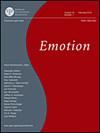Griffiths等人(2025)的《青春期情感控制:年龄和抑郁症状对工作记忆的影响》的勘误。
摘要
在Kirsty Griffiths, Darren L. Dunning, Jenna Parker, Marc Bennett, Susanne Schweizer, Lucy Foulkes, Saz Ahmed, Jovita T. Leung, Cait Griffin, Ashok Sakhardande, Willem Kuyken, J. Mark G. Williams, Sarah-Jayne Blakemore, Tim Dalgleish和Jason Stretton的“青春期情感控制:年龄和抑郁症状学对工作记忆的影响”报告中的错误(情感,2025[Feb], Vol 25[1], 70-78;见记录2025-19056-001)。由于处理错误,原始文章在作者说明中列出了不正确的开放获取许可。正确的开放获取许可是CC BY 4.0;https://creativecommons.org/licenses/by/4.0。本文的在线版本已被更正。(以下是原文摘要,收录于记录2025-19056-001)在情绪激动的情况下,人们的认知控制能力表现出显著的个体差异。情感控制通常在实验室环境中进行评估,通过比较在情感中立和情感激烈的环境中执行精心构建的执行任务的表现。有一些证据表明,情感控制在整个青春期都有显著的改善,尽管目前尚不清楚,尽管情感控制能力差被认为是成年后持续精神疾病的一个因素,但被认为有患抑郁症风险的青少年是如何进行情感控制的。因此,本研究在2016年至2018年收集的大量(n = 425)青少年(11-18岁)样本中调查了情感控制。采用情感中性和情感消极社会图像作为与任务无关的干扰物,同时进行视觉空间搜索和书面存储工作记忆(WM)容量任务,以检验情感控制。总的来说,在两种情感条件下,WM能力随着年龄的增长而增加。此外,我们报告了情感条件之间的显著差异,在情感消极的社会场景中,相对于中性的社会场景,WM能力略低。在每个条件下的表现和在相对于中性条件下完成任务的表现“成本”不受抑郁症状的调节。此外,与抑郁症状无关,年龄不能预测表现成本。这些发现表明,青少年的WM能力对社会情感环境和情绪的影响相对较强。(PsycInfo Database Record (c) 2025 APA,版权所有)。Reports an error in "Affective control in adolescence: The influence of age and depressive symptomatology on working memory" by Kirsty Griffiths, Darren L. Dunning, Jenna Parker, Marc Bennett, Susanne Schweizer, Lucy Foulkes, Saz Ahmed, Jovita T. Leung, Cait Griffin, Ashok Sakhardande, Willem Kuyken, J. Mark G. Williams, Sarah-Jayne Blakemore, Tim Dalgleish and Jason Stretton (Emotion, 2025[Feb], Vol 25[1], 70-78; see record 2025-19056-001). The original article the incorrect open access license listed in the author note due to a processing error. The correct open access license for the article is CC BY 4.0; https://creativecommons.org/licenses/by/4.0. The online version of this article has been corrected. (The following abstract of the original article appeared in record 2025-19056-001). People exhibit marked individual variation in their ability to exercise cognitive control in affectively charged situations. Affective control is typically assessed in laboratory settings by comparing performance in carefully constructed executive tasks performed in both affectively neutral and affectively charged contexts. There is some evidence that affective control undergoes significant improvement throughout adolescence, though it is unclear how adolescents deemed at risk of developing depression exercise affective control despite poor affective control being identified as a contributing factor to ongoing mental ill health in adulthood. The present study therefore investigated affective control in a large (n = 425) sample of adolescents (aged 11-18 years) collected from 2016 to 2018. A simultaneous visuospatial search and written storage working memory (WM) capacity task was carried out to examine affective control, using affectively neutral and affectively negative social images as the task-irrelevant distractors. Overall, WM capacity increased as a function of age across both affective conditions. Moreover, we report a significant difference between affective conditions, with WM capacity slightly lower during trials with affectively negative social scenes, relative to neutral. Performance in each condition and the performance "cost" for completing the task in negative relative to neutral conditions was not modulated by depressive symptoms. Furthermore, age did not predict performance cost, irrespective of depressive symptoms. These findings suggest that WM capacity is relatively robust against socioaffective contexts and mood in adolescents. (PsycInfo Database Record (c) 2025 APA, all rights reserved).

 求助内容:
求助内容: 应助结果提醒方式:
应助结果提醒方式:


